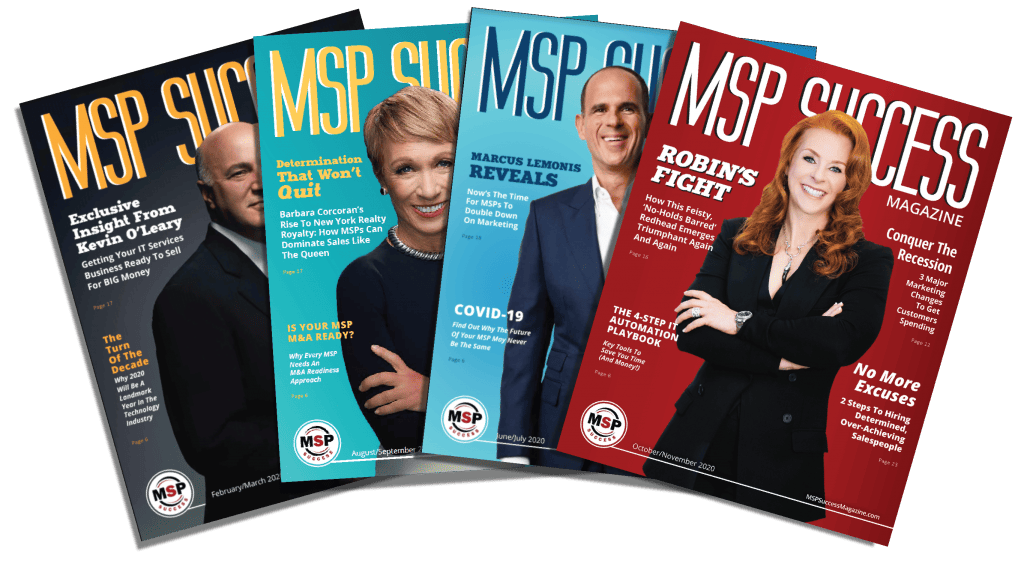The struggle is real. Despite decades of sincere efforts to improve year-end reviews, it’s still hard for many business owners to develop a smooth, effective process for understanding their employees. Even the experts struggle.
“[HR experts] cannot seem to get these things to a point where people are happy with them on both sides, but we keep trying,” says David Lewis, CEO of OperationsInc, a human resources consultancy. Try they must, because reviews are crucial times for feedback, recognition, coaching, and goal-setting —especially in a competitive talent market.
Paco Lebron, CEO of ProdigyTeks, a Chicago-based MSP, says most of his peers don’t take advantage of year-end reviews as part of a growth strategy. But even as 2023 comes to a close, there’s room to improve if you keep the following considerations in mind.
What To Measure
Every company’s process will be unique. However, MSPs say their must-have review items include deadlines met, the number of projects completed, the number of trouble tickets handled, and how quickly those are resolved. They’re also tracking professional and vendor-focused trainings or certifications completed each year.
Matt Vaadi, CEO of guhroo, an HR consultancy, suggests attaching desired outcomes to the elements of each person’s job description to develop an effective scorecard. Lebron adds that it’s important to measure how far employees have come since their last review. Are they improving in areas that were previously identified? Have they lost traction somewhere? Such questions helped reveal, for example, that one of Lebron’s customer service employees struggled with intake tickets but excelled at taking care of customers. So, that employee was moved to an account manager position, where they “knocked it out of the park.”
Lewis suggests KPIs be developed as collaboratively as possible, getting input even from new employees about what’s important to measure. Doing so changes the dynamic, so that the review reflects what the team has agreed to, not just what is dictated from the top.
POV: The Boss Asks Your Opinion
MSPs who don’t have employees complete self-reviews are missing out on valuable info. Lebron says self-assessments occur before employer reviews at ProdigyTeks. This approach gives management an idea of how an employee feels about their own performance and fosters more empathy in the review discussions.
“Some of them are a lot harder on themselves than they should be,” Lebron says. “And then there are some that we have to have more conversation with, because what they believe is a value to the business is maybe slightly off from our values, mission, and vision.”
Employee reviews of management also help them feel empowered, though nobody should expect a 100% honest assessment of superiors who can impact their salary or advancement, says Lewis. To address this challenge, Lebron uses anonymous CEO reviews.
Don’t forget that your managers may need guidance on how to incorporate employee feedback into the review process. In fact, they might require extra support to enable effective reviews, or to make sure they happen at all.
“Not all managers are created equal. We don’t invest enough time and energy in training our managers how to do these,” Lewis says. In the same vein, Vaadi says failing to automate the process is one of the biggest mistakes CEOs make. He suggests automating everything from scheduling and reminders, to capturing information and running calculations for points-based reviews.
The Money Question
Should pay raises be tied to employee reviews? MSPs and HR experts mostly say, “nope.”
Lewis says if raises are solely dependent on high-scoring reviews, managers looking to ensure adequate compensation are sometimes tempted to rate employee performance higher than they should. That becomes a liability problem down the road if an employee is no longer a good fit, but the review tells a different story.
Lewis says market-based compensation adjustments should be handled separately from performance discussions, and MSPs agree. Lebron says salaries at his firm are tied to roles and tenure, while reviews help inform annual bonuses. Similarly, Robert House, CEO of Dallas-based Triton Networks, says their year-end bonuses reflect employees’ progress toward goals set during their mid-year reviews.
Don’t Stop At Year-End
Everyone agrees year-end reviews are not enough. They should be the capstone to a series of more frequent reviews — and even more frequent communication in between those. Otherwise, Vaadi says, “You’re going to miss the mark 100 times out of 100 because of a lack of access to information and the halo effect of things that are happening in more recent months, days, and weeks.”
House says a combination of quarterly meetings soliciting feedback, mid-year reviews, and swift, in-person conversations to address complaints amount to a sort of ongoing review process. He says an entire year is too long to wait.
“I can’t fix something if I don’t know it’s broken,” says House. And, in a challenging field with ongoing talent challenges, the fixes need to come faster than ever.












